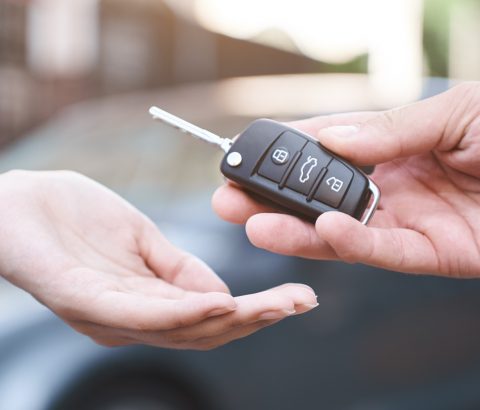Logbook Loans
What is a logbook loan?
Put simply, a logbook loan is a loan that is secured on a vehicle – this could be a car, van, motorcycle, or just about any other privately-owned vehicle. The owner of the vehicle takes out a loan from a logbook lender, and the logbook lender technically ‘owns’ the vehicle until the logbook loan is repaid. During the period of the loan, the owner of the vehicle can carry on using the vehicle as normal, as long as they keep up with the loan repayments.
Why is it called a logbook loan?
They are called logbook loans because when you take one out, you have to give the lender your Vehicle Registration Certificate (V5C), which is often known as a ‘logbook’. This document proves to the lender that you are the vehicle’s registered keeper/owner.
Important things to be aware of:
- To take out a logbook loan, you must be the legal owner of the vehicle and have no outstanding finance owing on it
- Interest rates on logbook loans can be very high – often as much as 400% APR or more – so it’s always worth checking if there are other cheaper ways of borrowing, even if you have a poor credit rating and need money quickly
- If you don’t keep up your loan repayments to the logbook lender, you may lose your vehicle. Logbook lenders can take action using enforcement agents (bailiffs), without the need to apply to a court
- Logbook loans don’t usually come with the same level of consumer protection as a normal hire purchase (HP) agreement
- Check if your logbook loan comes with any early repayment fees and charges
- Many logbook loan companies require weekly repayments, and some won’t accept direct debit payments, so you’ll need to remember to make your repayments
- If your vehicle is seized by the logbook lender and sold for less than the total amount you owe them, the logbook lender can apply to a court to recover the shortfall from you
- If you do decide to apply for a logbook loan, check that your chosen lender belongs to a relevant, reputable trade body
How does a logbook loan work?
Logbook loans are advertised online and on the high street. How much you can borrow depends on the value of your vehicle. Often, you won’t be allowed to borrow more than the vehicle’s current value, and the logbook loan company may require an independent valuation of the vehicle before agreeing to lend you money on it.
If you’re resident in England, Wales or Northern Ireland, you’ll be required to sign a credit agreement and a ‘bill of sale’. This gives the logbook lender temporary ownership of your vehicle, but you retain permission to use the vehicle as normal, as long as you keep up with the logbook loan repayments. The ‘bill of sale’ will only be valid if the logbook lender registers it with the High Court – if not, the logbook lender would need to apply to the court before seizing your vehicle if you don’t repay the logbook loan. ‘Bills of sale’ don’t apply to transactions in Scotland.
Once your logbook loan is approved, you’ll normally get your loan amount in the form of a cheque from the logbook lender – this may take a few days to clear into your bank account. Some logbook lenders offer a quicker way to get your loan cash – but they will often charge a fee for this, which could be as much as 4% of the total amount you’re borrowing.
Struggling with debts? Contact us today!
If you’re thinking about taking out a logbook loan and struggling with debts, it could be worth contacting us to find out about a wide range of other practical debt solutions that help people deal with their debts and get on with living their life.
The best way to find out what makes us different is to call us free on 0800 316 1833 and have a chat with one of our fully trained advisors. They’ll listen to you and talk about you, your life, your debt and your aspirations. You’ll find them understanding of your situation and helpful in your search for a solution that’s right for you.
Call us today on 0800 316 1833 for confidential, no obligation debt help and advice. Or you can complete and submit our online Debt Help form and we’ll call you back


